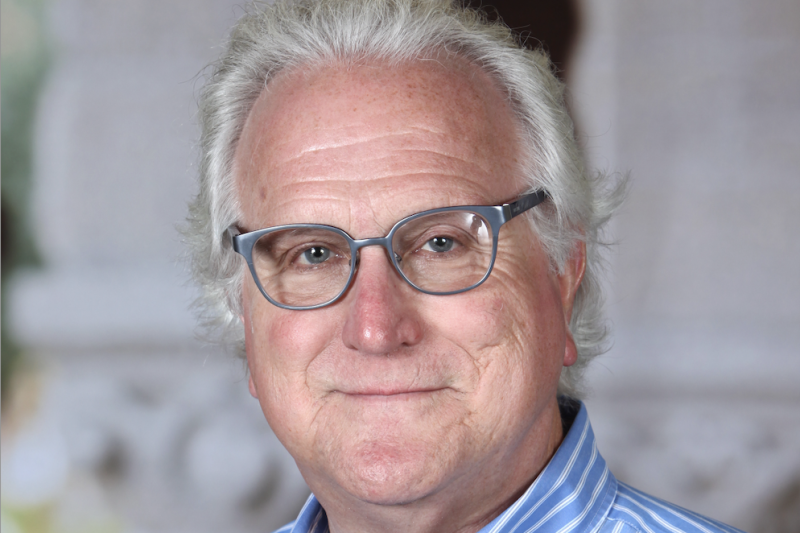
Political theorist Danielle Allen discusses education and equality
[Editor's note: For a reflection on her visit, please see this article on the website of the Center for Ethics in Society. Below you'll find an interview with Allen before she delivered the lectures.]
After roughly 100 years of widespread compulsory grade-school education in the United States, why are we still confused over the purposes of education? What is the relationship between education and equality? What should be the central goal of education?
Danielle Allen, a political theorist at the Institute for Advanced Study in Princeton, N.J., will talk about these questions in twoTanner Lectures on Human Values at Stanford University.
Allen will deliver the first lecture, "Education and Equality: Two Concepts of Education," at 5:30 p.m. Wednesday, Oct. 8, at theBechtel Conference Center.
She will deliver the second lecture, "Education and Equality: Participatory Readiness," at 5:30 p.m. Thursday, Oct. 9, also at the Bechtel Conference Center.
Both lectures are free and open to the public.
The day after each of the lectures, two scholars will lead discussions about the issues presented by Allen.
On Oct. 9, Tommie Shelby of Harvard University and Marcelo Suárez-Orozco, dean of the Graduate School of Education and Information Studies at the University of California, Los Angeles, will discuss "Education and Equality: Two Concepts of Education" in Encina Hall.
On Oct. 10, playwright Quiara Alegría Hudes and Michael A. Rebell of Columbia University will lead the discussion on "Education and Equality: Participatory Readiness" in Encina Hall.
Philosophy Professor Debra Satz, director of the Center for Ethics in Society, said the lectures "will probe the relationship between education and equality with an aim of helping guide our public debates."
A central idea that Allen probes "is the idea that education should prepare children to fully participate in civic and political life. Too many of our citizens lack participatory readiness, an idea she explores in these lectures," Satz said.
Allen is a political theorist publishing on political sociology, the history of political thought, and democratic theory. In 2002, she was awarded a MacArthur Fellowship.
She has published several books, most recently Our Declaration: A Reading of the Declaration of Independence in Defense of Equality, a new interpretation of the Declaration of Independence.
In an interview with Stanford News Service, Allen previewed some of the lecture topics.
Why are we still confused over the purpose of education?
There are social purposes that we have in mind when we talk about education; there are also purposes of individual human development. We are not so good about knowing when the social purposes are relevant and when the individual purposes are relevant. Social purposes may be having an economically productive population, having an engaged citizenry. The individual purposes have to do with individual human flourishing. Sometimes we invoke concepts from the social realm when we should be invoking concepts from the individual realm and vice versa. I'm trying to help clarify when each type of thinking about education is relevant.
Conversations about education have become a proxy for conversations about poverty. We need to talk about poverty, and there's lots to say on that subject, but we're at some danger of beginning to lose our understanding of what education itself is as a human activity.
Briefly, what is "participatory readiness" and why is that important?
Our public discourse focuses on the purposes of K-12 education, in particular being to achieve college readiness and career readiness. We need to round that out with the idea of participatory readiness, which is to participate, to take part in shaping one's community, at the level of where one lives, one's political community, and so forth.
What do you hope people will learn from your lectures?
I am coming to Stanford in the hopes of getting help! I've been stuck for a long time on this question of "what is the right way of setting the concepts of education and equality in relationship to each other?" The fact that the subject of education has become a proxy for the subject of poverty confuses the matter.
I am going to make some suggestions about how we might improve our ability to think about education, and also our ability to think about poverty. I'm looking for help from the audience in that work. I'm hoping we get a lot of interesting people responding, so that drawing on what I learn next week, I can take my own arguments to the next level.
Each of your lectures will be followed by discussions the next morning. Will you be there?
Absolutely, it's a terrific group of commentators. I couldn't be more delighted. It's a rare privilege to get a group of people of that quality all responding to a single piece of one's work. It's an extraordinary opportunity.
Any last thoughts?
I'm looking forward to it. It's a huge honor and a daunting prospect. I'm really looking forward to seeing what I will learn from the conversations with the people who come along to the lectures.
***
The Tanner Lectures are held annually at Stanford and eight other distinguished universities in the United States and the United Kingdom. Tanner Lecturers are chosen in recognition for their uncommon achievement and outstanding abilities in the field of human values.
Rex Sanders is an intern at the Stanford News Service.



